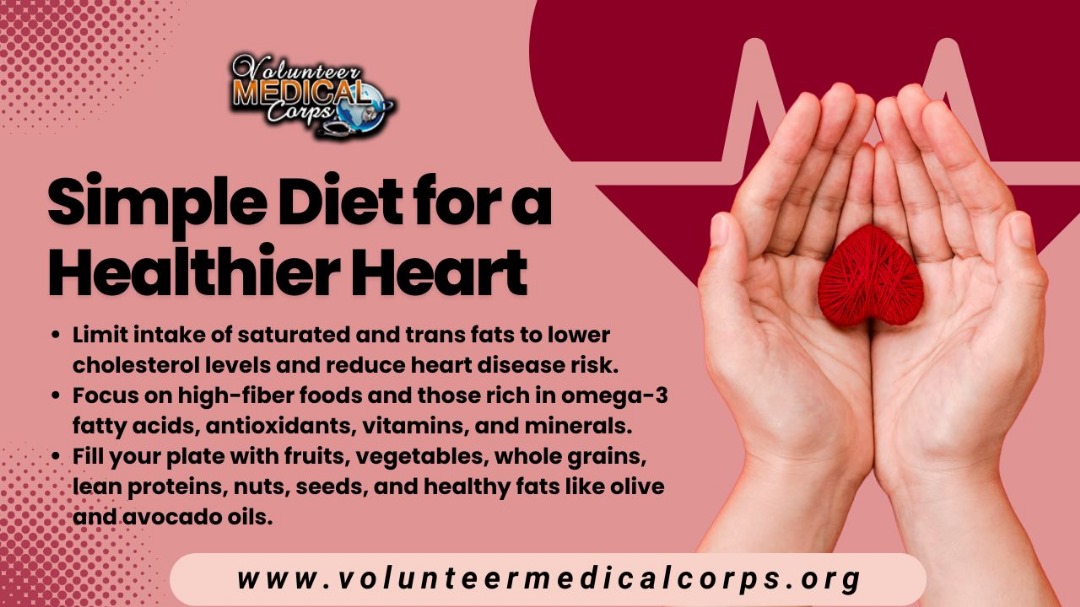
A heart-healthy diet focuses on reducing risk factors for cardiovascular disease, such as high cholesterol, high blood pressure, and obesity.
1. Reduce Saturated and Trans Fats: Limit foods high in unhealthy fats that can raise cholesterol levels and contribute to heart disease.
2. Increase Fiber Intake: Fiber-rich foods help lower cholesterol and improve digestive health.
3. Consume Heart-Healthy Nutrients: Emphasize foods rich in omega-3 fatty acids, antioxidants, and essential vitamins and minerals.
4. Fruits and Vegetables: Aim to fill half your plate with colorful fruits and vegetables. These foods are packed with vitamins, minerals, and antioxidants that support heart health. Berries, leafy greens, and citrus fruits are particularly beneficial.
5. Whole Grains: Choose whole grains over refined grains to increase fiber intake. Options like oatmeal, quinoa, brown rice, and whole wheat bread help lower cholesterol levels and stabilize blood sugar.
6. Lean Proteins: Opt for lean protein sources such as fish, poultry, beans, and legumes. Fatty fish like salmon, mackerel, and sardines are rich in omega-3 fatty acids, which can reduce inflammation and lower the risk of heart disease.
7. Nuts and Seeds: Incorporate nuts (e.g., almonds, walnuts) and seeds (e.g., flaxseeds, chia seeds) into your diet. They provide healthy fats, fiber, and essential nutrients that promote heart health. Healthy Fats: Use heart-healthy oils such as olive oil and avocado oil for cooking. These oils are rich in monounsaturated fats, which can improve cholesterol levels and reduce heart disease risk.
8. Low-Fat Dairy: Opt for low-fat or fat-free dairy products to reduce saturated fat intake while still benefiting from essential calcium and vitamin D.
9. Plan Your Meals: Create a weekly meal plan that includes a variety of heart-healthy foods. Preparing meals at home allows you to control ingredients and portion sizes.
10. Read Labels: Pay attention to food labels when shopping. Look for products low in saturated fats, trans fats, and sodium, and high in fiber and healthy fats.
11. Watch Portions: Be mindful of portion sizes to avoid overeating, even with healthy foods. Using smaller plates and bowls can help with portion control.
12. Limit Added Sugars and Salt: Reduce the intake of foods and drinks high in added sugars and sodium, opt for natural sweeteners and use herbs and spices to enhance flavor without extra salt.
13. Stay Hydrated: Drink plenty of water throughout the day. Proper hydration supports overall health and helps maintain cardiovascular function.
Admin